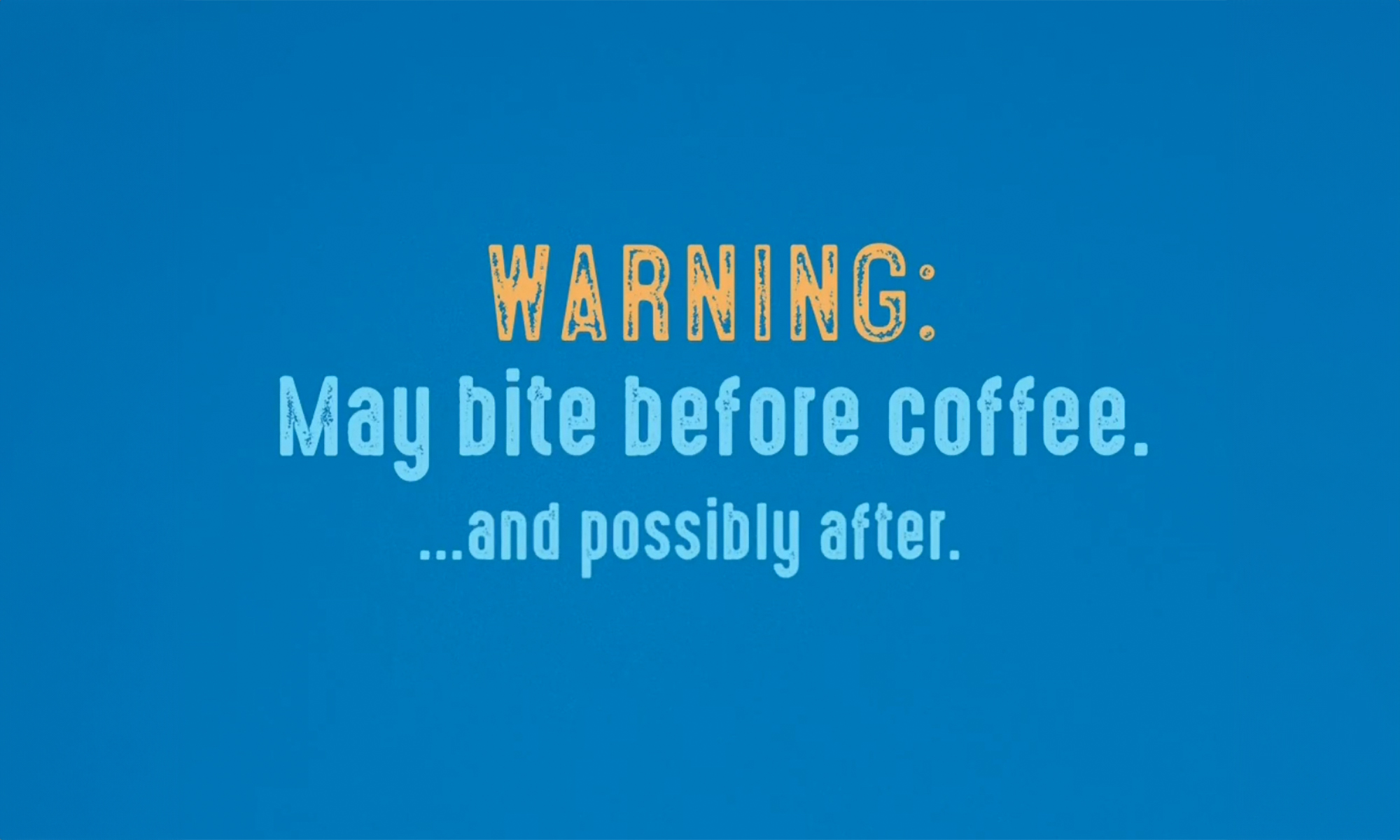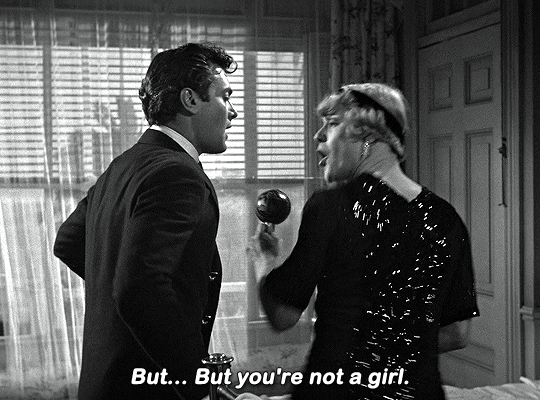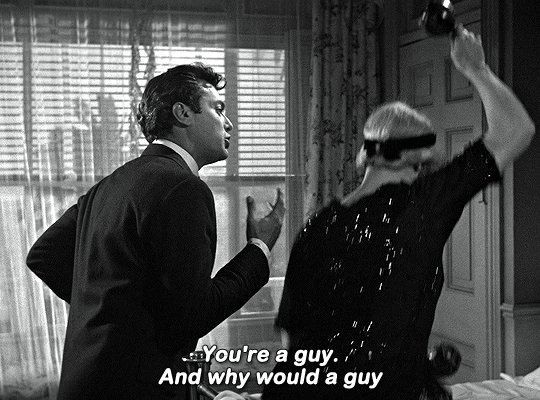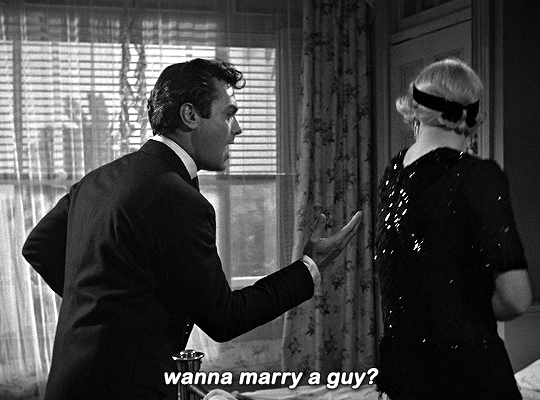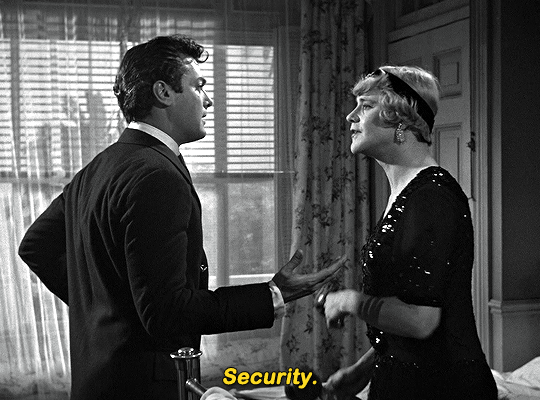#someone pointed out once that he chose his female name because he liked it#whereas the other man just picked the female version of his existing name#because it was easier and that was his main concern#lot of interesting gender stuff going on here
Oh yeah there was a lot of "Hayes Code be damned, all of us making this film are queer/friends with queers and we're going to have some fun with gender identity" in this film. That's why it still holds up. It's not a story based around getting a laugh out of dressing men up as women so they can be clowns – there's an integrity to the cross-dressing. Daphne is an identity Jerry realized he had when he put on a dress. Every time he chooses to keep his wig and outfit on and maintain his feminine mannerisms while alone with Joe, it shows his comfort in this identity, and it elicits laughter from the audience through the dialogue, ie. the audience isn't laughing at the fact that a man is in a dress, but at the characters as fleshed out characters and human beings. The laughter comes from the situations the characters are put in and their reactions to them, not from a parody of womanhood presented through a male perspective. Similarly, Osgood's classic line at the end of the film is an affirmation that he likes Jerry as he is, even if he's Daphne. It's a way of getting the audience to say, "this is fine, we're comfortable" through laughter to something socially unacceptable in its time.
Joe's masculine identity, meanwhile, is used to highlight his misogyny and force him to understand it (and the same with Jerry, but as he's less of a womanizer, there's less of a point to be made with him). In a world where men and women often had separate social circles that overlapped only when romance was on the table, putting a man like Joe in a female space where he's privy to the conversations and emotions that his actions elicit gives him a lot to contend with and understand because he can see the consequences of his actions as raw pain and secondhand, instead of as anger being spewed directly at him. Again, the joke isn't that he's a man in a dress, or that he's parodying womanhood, it's that as a selfish misogynist he's put in situations where he's forced to empathize with the experience of womanhood in order to convincingly enact it for his own safety.
There's a whole lot more to unpack in the metaphor of these two men having to pass as women because their lives are at stake if they don't.
[Source]
